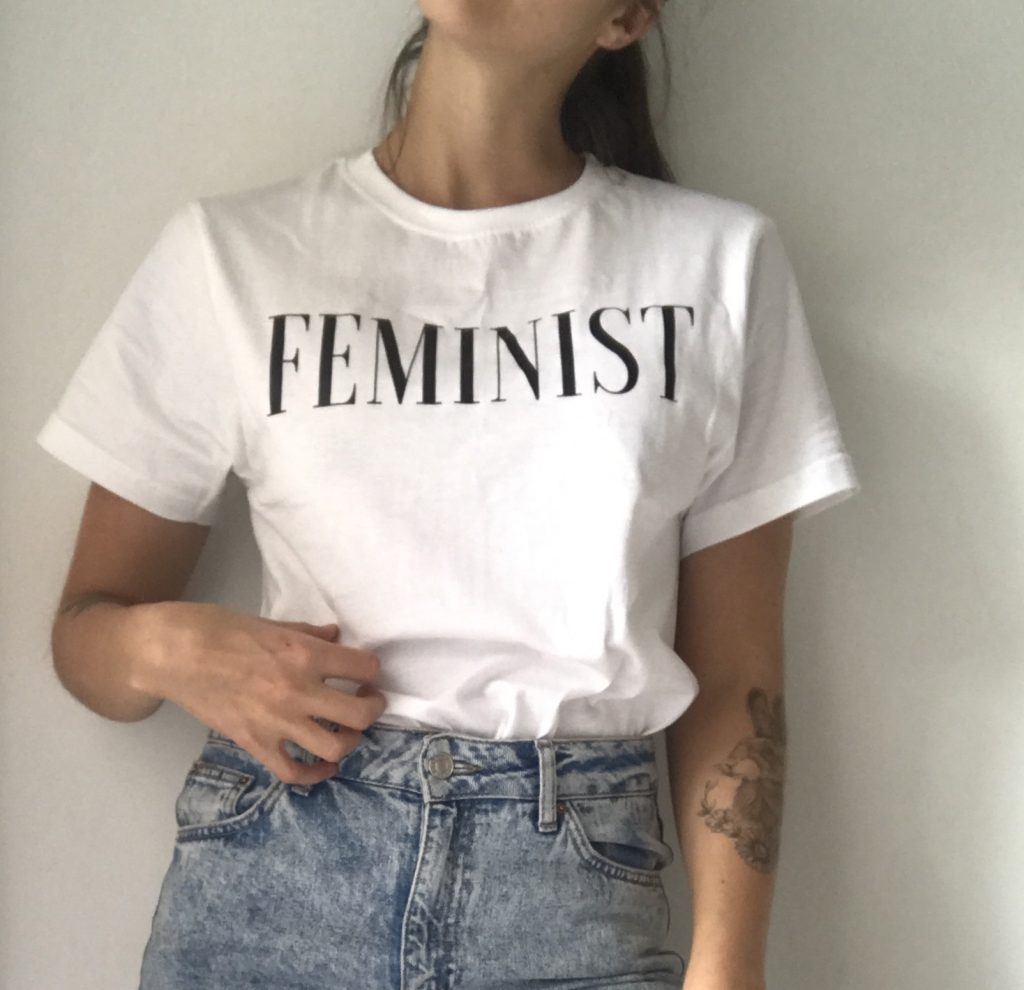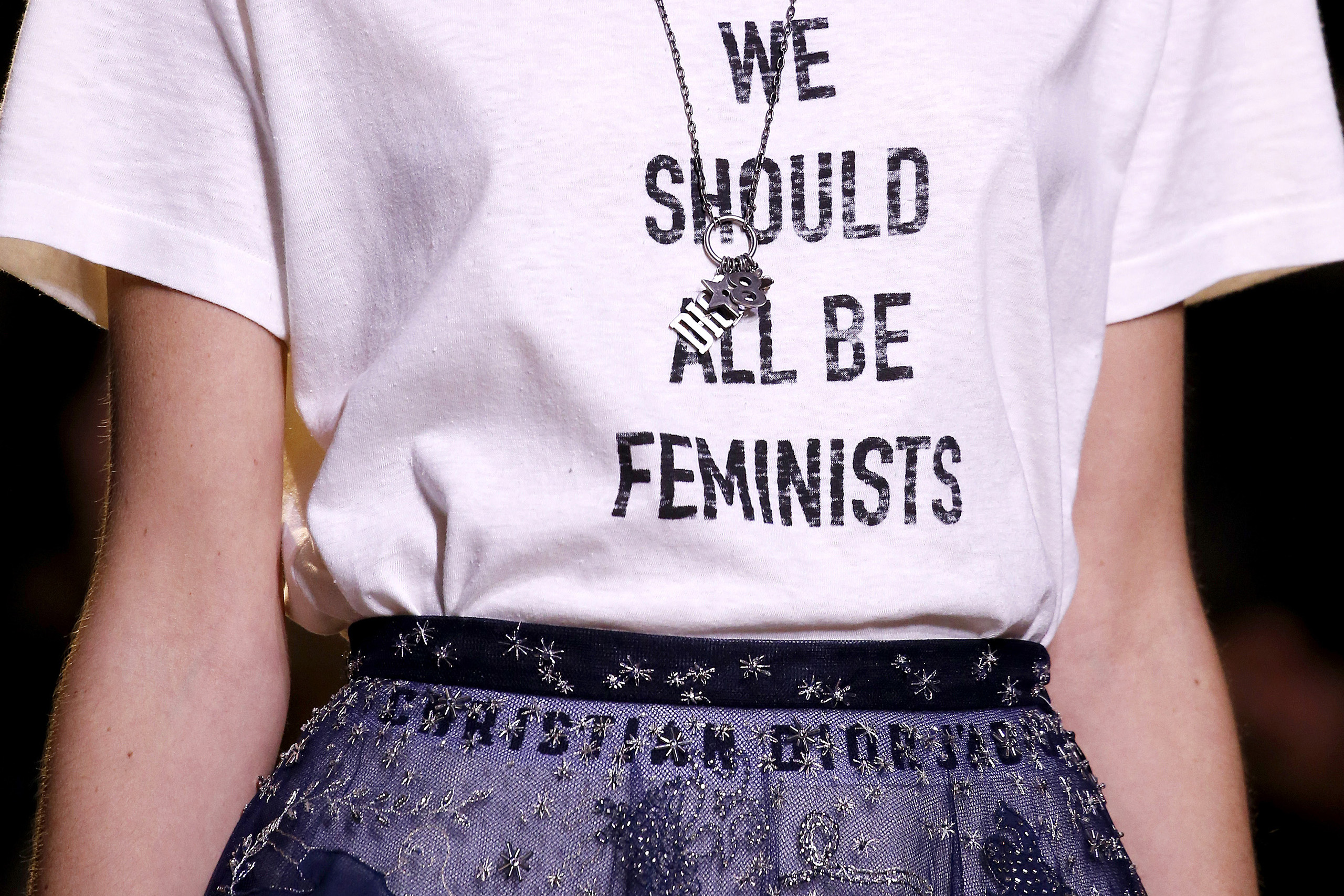“Girl Power.” “Feminist AF.” “Sushi Rolls Not Gender Roles.” In recent years, these particular slogans, among many others, have been plastered onto countless mass produced t-shirts, phone cases, pins, backpacks and other items. The word feminism has become so ubiquitous in fashion and media that it has become almost inescapable.
The sudden presence in feminist clothing and the presence of the word in popular culture appears to be a victory for feminism, as awareness is certainly increasing. However, the mass produced awareness of feminism comes at the expense of ignorance of the history and struggles of the movement, as well as true meaning beyond simply “girl power.”
Feminism, at its core, strives to achieve political, social and economic equality of men and women. Activism has been carried out through a range of social and political movements, including Emma Watson’s United Nations HeForShe campaign and the recent Women’s Marches throughout the world following Trump’s inauguration. Feminism has clearly become more prominent and accepted in today’s society, which is a stark contrast to its perception from merely a few decades ago.

The concept of feminism has undergone a dramatic shift in the cultural landscape. Previously the word was heavily stigmatized and identifying as a feminist was largely unheard of, as it was thought to refer to radicals and man-haters. However, an era of social progression has made its way into the cultural mainstream, successfully bringing feminism into the cultural mainstream.
More people today, particularly the younger generation, identify as feminists, which aids in erasing the historical stigma. What was once a considered a fringe movement has now successfully entered into the common mind and has proven itself as here to stay.
In the 21st century, feminism has clearly undergone a paradigm shift from ideology on the margins to an aesthetic of sorts. In other words, feminism, which was once viewed as a radical leftist ideology, is now being distorted by corporations in order to spin the ideology as more attractive to the mainstream. American culture is now dominated by liberal leftist ideas, one of which is the idea of feminism. As a result, corporations have astutely taken advantage of the increasing awareness and willingness of people to identify as feminists, and have consequently aided in spreading a shallow, diluted form of feminism.
The mainstream feminism pushed by corporations isn’t simply a result of a genuine desire to educate feminism and surrounding issues. Rather, corporations know that feminism sells and empowerment means profit. For example, Always, a well-known feminine hygiene product company, promises to “empower girls everywhere.” Another prominent example of pop culture feminism is various Hollywood celebrities adopting feminism as part of their brand and reproducing their own version, though not always with successful results. For example, so-called feminist Lena Dunham has been criticized for the lack of diversity on her TV show, “Girls,” as well as her ignorance of issues facing people of color. Of course, feminism is easier said than done.
Mainstream feminism, which can also be referred to as corporate feminism, incorporates a few feminist ideas and spins them into a version suitable for the masses. As a result, ideas such as “girl power” and “female empowerment” are pushed into the spotlight. While there is nothing inherently wrong with girl power, the inundation of these shallow versions of feminism effectively ignores the reality that many marginalized people face on a daily basis. Mainstream feminism fails to be intersectional.

According to Merriam-Webster, intersectionality is “the complex, cumulative manner in which the effects of different forms of discrimination combine, overlap, or intersect.” In other words, intersectionality means that different types of discrimination, such as sexism and racism, are all connected to each other. Therefore, intersectional feminism states that discrimination against women is directly connected to other systems of oppression, including race, ethnicity and sexual orientation.
Intersectionality complicates feminism. Corporations advocate an idea of feminism that is not only surface-level and easy to understand, but ignores the reality of what feminism actually entails. From a business perspective, “girl power” slogans set against a splashy background is clearly more attractive than retelling the harassment faced by women on a daily basis.
A prominent example of mainstream feminism is that of Taylor Swift. In her decade-long career, Swift has not always identified as a feminist, and explicitly said so early in her career. However, as feminism became more accepted and more celebrities jumped on the bandwagon, Swift did the same and publicly declared herself a feminist. Though Swift may have simply not been educated on feminism in the past, her version of feminism that she advocates is largely one-sided, and not actually feminism. Now a feminist, Swift pushes women to help and “support” each other but not much else. Swift, as well as many other celebrity feminists, ignores the complex intersectionality associated with feminism.
Overall, feminism has become more public and accepted today — seen in countless thinkpieces, often aided by platforms such as 501Words — which is a stark contrast to society of a few decades ago. From a publicity perspective, the now-prominence of feminism is a victory. However, that version is merely “marketplace feminism,” just a “cool, fun, accessible identity,” says Andi Zeisler, founder of “Bitch Magazine.” Furthermore, Zeisler argues marketplace feminism is all about styles and attitudes rather than the real issue of confronting “deeply entrenched forms of inequality.” Popular feminism successfully simplifies feminism for the masses, at the expense of issues, such as violence and discrimination that can’t be simplified.
Feminism has undeniably become a major part of the cultural landscape, which is great from the perspective of awareness. However, its simplification does not help to spread awareness on the true meaning of the movement. After all, feminism deals with gender roles a lot more than sushi rolls.
















